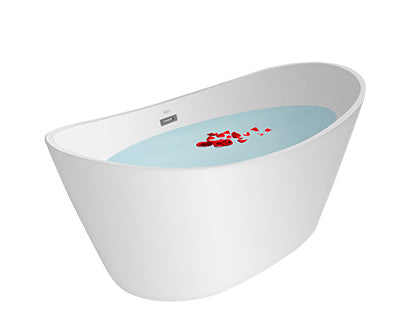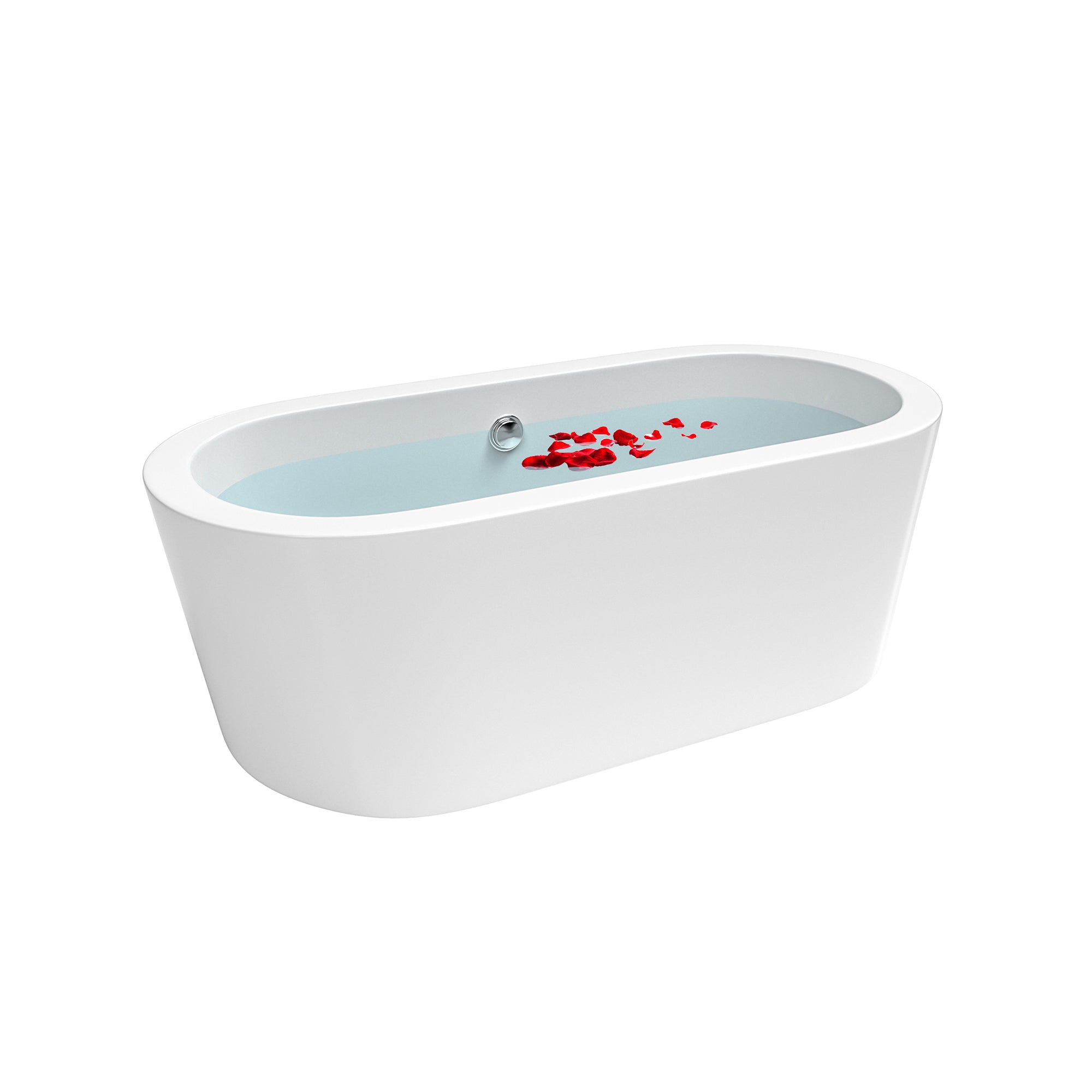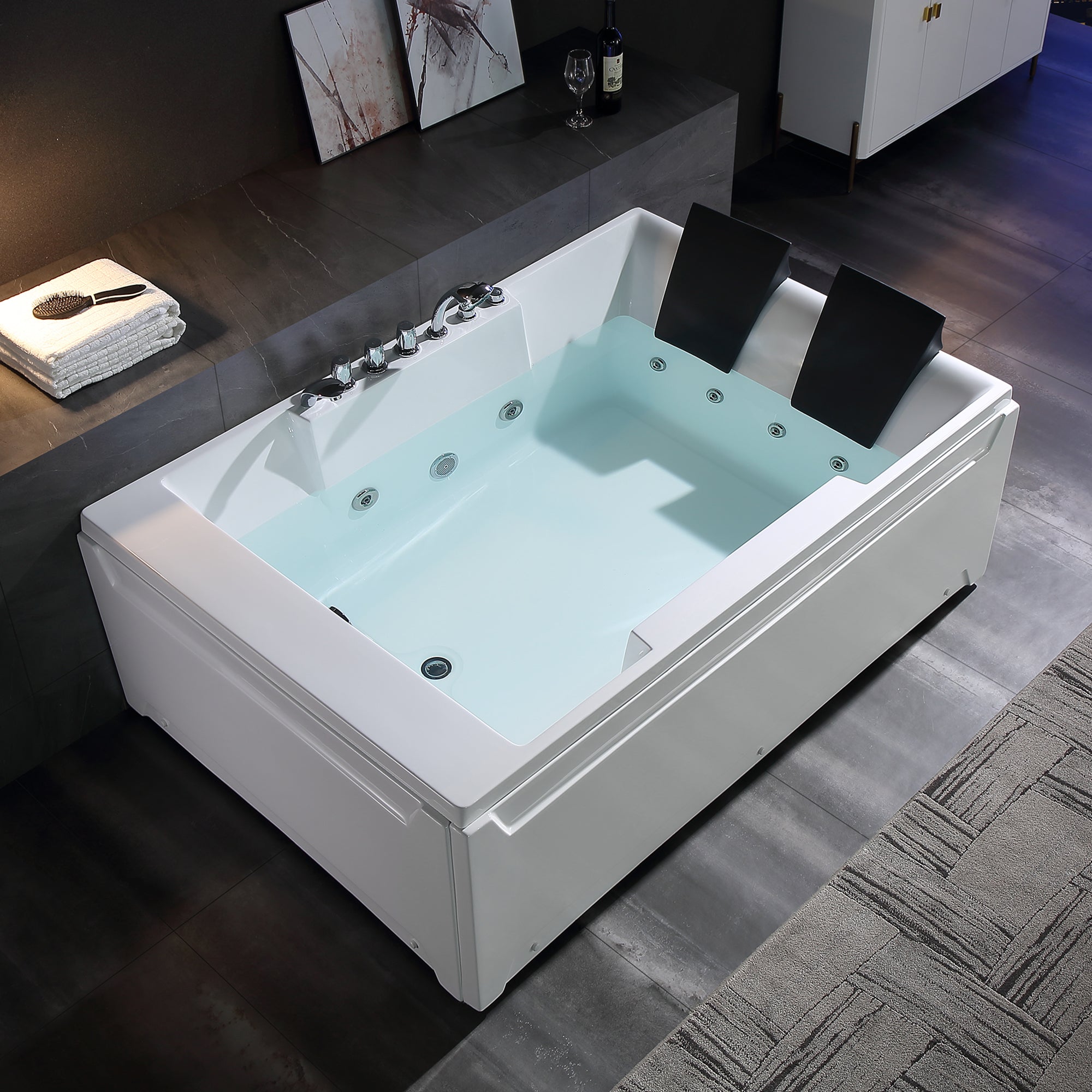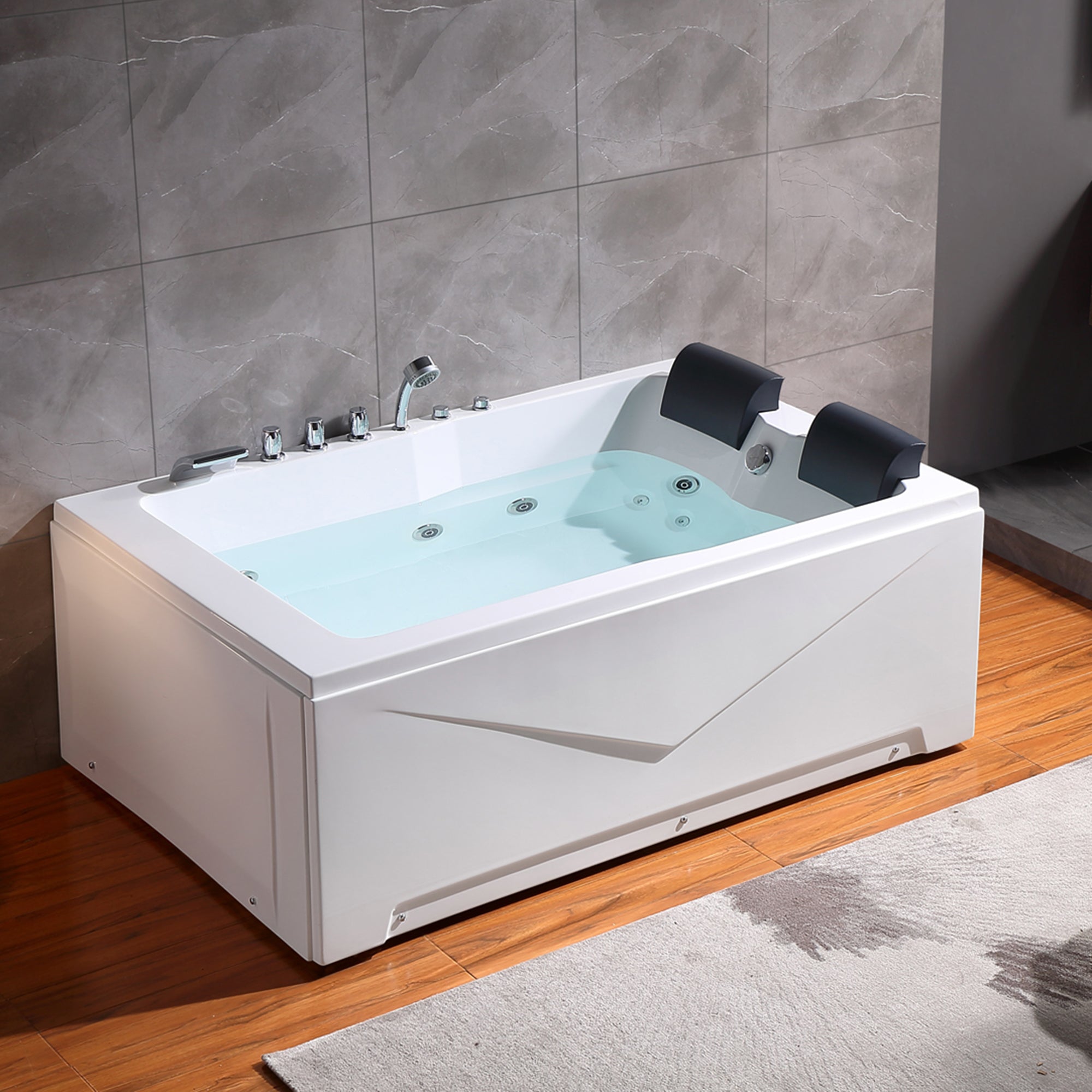

How Many Gallons Are In A Bath Tub?
How many gallons in bathtubs?
There is no 'standard' bathtub size because there are so many different sizes on the market, however there are typical or more common measurements. A bath uses approximately 35-70 gallons (132-264 liters) of water on average, whereas a ten-minute shower uses approximately 25 gallons (94 liters). Baths, aside from general heating expenditures, should be limited to a special treat rather than a daily practice, as they may be rather expensive on your water and utility bills.
In this article, we will answer a few normal questions and introduce how many gallons Empava bathtubs have for different bathtubs.
How much do Smaller, Common and Larger bathtubs hold?
To begin with, a normal bathtub holds approximately 70 gallons (264 liters) of water. Smaller bathtubs can only store about 40 gallons (150 liters) of water and are usually better suitable for smaller children or as a shower room. Whereas much larger bathtubs can readily contain up to 100-110 gallons (378-410 liters) of water, and these include single person baths that can easily accommodate the higher water weight.
Bathtub sizes can vary, but there are some typical capacities:
- Smaller bathtubs: Around 40 gallons
- Standard bathtubs: 50-70 gallons
- Large / double bathtubs: 80-170+ gallons
How much do Freestanding, Corner and Other Bathtubs hold?
Aside from looking somewhat different, each bathtub will have a varied overall water capacity based on the style and type of bathtub. 2-person bathtubs as well as corner bathtubs are often relatively large, providing for more water capacity.
Most freestanding bathtubs can contain 50-70 gallons of water because they are meant for single person bathing. (189–264 liters). Corner bathtubs are a bit larger, meant for more people use, which means the water capacity will be much more than one person, typically able to hold anywhere from 90-100 gallons (340-378 liters). Empava Acrylic Whirlpool Tub fit the more normal bathtub capacity type, typically holding 60-80 gallons, while greater sizes do exist due to the wide variety of models and styles available. in general (227-302 liters). This takes us to shower/tub combos, which are on the same spectrum as freestanding and acrylic drop-in showers because the majority of these showers are created with either of these types as the base. On average, you can expect a minimum of 60 gallons and a maximum of 110 gallons. (227 and 416 liters, respectively).
Another point to consider is the capacity of your water heater in conjunction with the additional water capacity of your bathtub. In most homes, a water heater with a capacity of 30-36 gallons of water is installed. If your house has four or more people, you probably have a larger water heater with a capacity of 40-60 gallons of water. This is significant because the more water your bath and showers can hold, the more powerful and huge your water heater needs to be in order to support your lengthy relaxing showers/baths with a steady flow of hot water.
Typically, factors like the bathtub shape and whether it's a combo tub/shower can also impact capacity. Here are common bathtub styles and their average gallons:
- Alcove tub: 50-60 gallons
- Clawfoot tub: 40-60 gallons
- Corner tub: 90-100 gallons
- Freestanding tub: 60-80 gallons
- Tub/shower combo: 60-80 gallons
- 2-person tub:100-170+ gallons
Gallons per Bathtub
The average bathtub capacity ranges from 40 to 70 gallons of water, and if the tub is constructed for a small corner area, it will be near the lower end of that range, typically around 40 gallons. A clawfoot tub typically holds 40 to 60 gallons of water, but a modern freestanding tub carries 60 to 76 gallons. Tub-shower combo systems may have a bigger capacity, typically 60 to 80 gallons, or even more for larger models. Keep in mind the water displacement that occurs after you get into the tub; there's no need to fill the tub to anywhere near the height of the overflow drain cover when it's time for a bath.
How many gallons are in a standard bathtub?
Empava bathtubs water capacity ranges from 40 to 177 gallons
Empava-59FT1518LED 40 gallons
59 in. Soaking Freestanding Oval Bathtub


Empava-59FT1505 53 gallons
59 in. Soaking Freestanding Bathtub
Empava-59AIS06 60 gallons
59 in. Whirlpool Acrylic Alcove Bathtub
Empava-67JT351LED 63 gallons
67 in. Whirlpool Rectangular Bathtub
Empava-67AIS16 70 gallons
67 in. Whirlpool Freestanding Acrylic Bathtub
How many gallons are in a 2-person bathtub?

Empava-59JT319LED 100 gallons
59 in. Whirlpool Corner Bathtub
Empava-72JT367LED 177 gallons
72 in. Whirlpool Rectangular Bathtub


Empava-71JT667B 177 gallons
71 in. Acrylic Alcove Whirlpool Bathtub
When to Choose a Bathtub or Shower
Consider your priorities and needs when deciding between a bathtub or shower:
- Saving water? Showers are generally more water-efficient, using 25 gallons or less for a typical 10-minute shower. Baths use 35-50 gallons of water on average. If water conservation is your top concern, aim for quick showers instead of daily baths.
- Seeking therapeutic benefits? Baths can be great for sore muscles, arthritis, clearing congestion, and more due to the warm water and opportunity to fully relax. Limit to a few times per week for the wellness benefits while still saving water.
- Have limited space? Focus your search on alcove and clawfoot tubs which fit into smaller spaces. You can even find some space-saving corner tub designs that tuck neatly into angled areas. Freestanding and large soaking tubs take up more square footage.
- Prefer baths for kids? Look for child-sized tubs that require less water to fill. Also consider adding bath toys and games to make bath time more fun and interactive.
- Want the best of both worlds? Choose a tub and shower combination. This gives you the flexibility of both options in one bathroom fixture. Just be aware it will take more water to fill than a shower stall alone.
Comparing Tub and Shower Water Usage
When deciding between a bathtub or shower, it's helpful to compare the water usage.
- Average bath: 35-50 gallons
- 10-minute shower: 25 gallons
So in most cases, a bath does use more water than a quick shower. However, baths provide additional health and therapeutic benefits that showers cannot offer.
For an even more detailed comparison, the Environmental Protection Agency estimates typical shower water use is 10-25 gallons per shower. So even on the higher end of that estimate, a 10-25 minute shower still uses less water than the average 35-50 gallon bath, in most cases. The only exception would be bathing a young child using just a small amount of water in the tub.
Overall, showers tend to be more water efficient, but baths provide therapeutic benefits:
- Improve heart health - Warm water can improve circulation and lower blood pressure.
- Ease breathing - The steam from a bath can help open airways for easier breathing, especially beneficial for congestion.
- Relax muscles - The buoyancy of water takes pressure off joints and relaxes the body.
- Reduce stress - A soothing soak can lower cortisol and relax the mind.
- Improve sleep - Bathing before bed can help regulate body temperature and improve sleep quality.
- Balance hormones - The warmth and massage effect may help normalize hormone levels.
- Cleanse and hydrate skin - Baths can cleanse and moisturize skin, hair, and eyes.
Aim for quick 5-10 minute showers daily, and limit baths to 2-3 times per week to get the best of both worlds while conserving water.
In summary, standard bathtub capacities range from 40-70 gallons, with many falling in the 50-60 gallon range. Larger tubs like corner, freestanding, and tub/shower combos can hold 80-110+ gallons. While baths use more water than the average shower, they also provide therapeutic benefits like relaxing muscles and soothing joints.
When choosing between a bathtub or shower, consider your priorities. Do you want to conserve water, or have a soothing soak? What will fit your bathroom space? Combination tub/showers give you flexibility in a single fixture. Look for smaller alcove tubs for tight spaces, and larger corner tubs for a spa-like soaking experience.
No matter what you choose, be mindful of your water usage. Limit baths to a reasonable frequency, and aim for 5-10 minute showers. Investing in a water-efficient showerhead can also help reduce your home's water consumption. With some forethought, you can enjoy a relaxing bath or invigorating shower without overusing your precious water supply.
Got a question? Feel free to reach out to service@ibathtub.com.
Subscribe to our newsletter
- Choosing a selection results in a full page refresh.
 Select A Custom Gift
Select A Custom Gift

